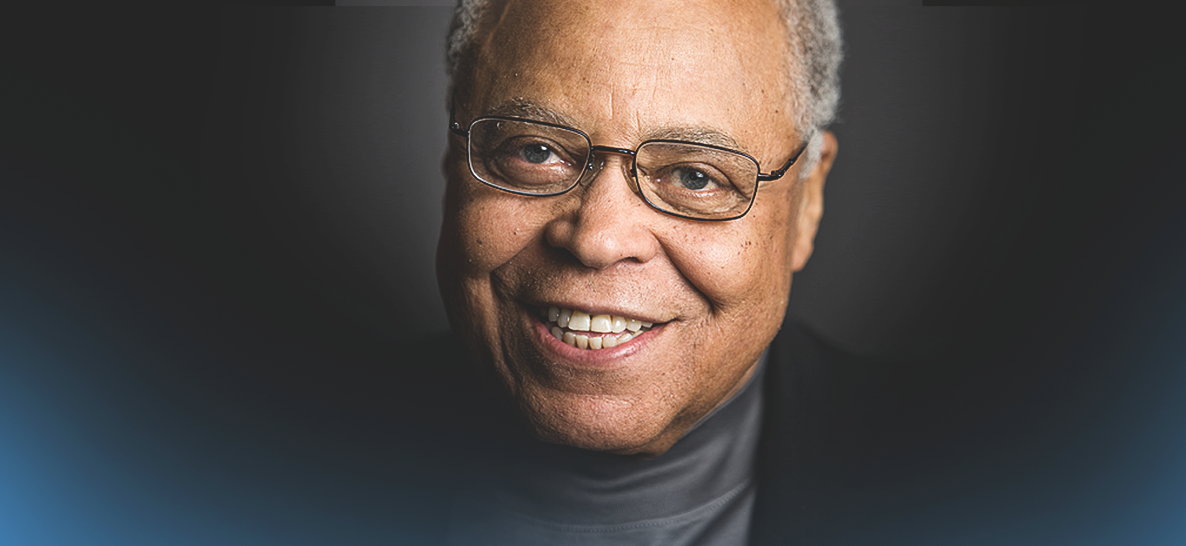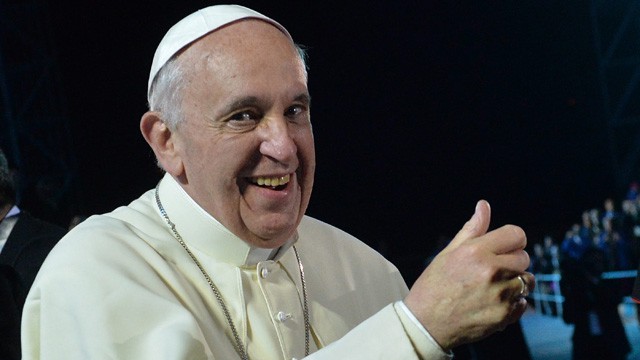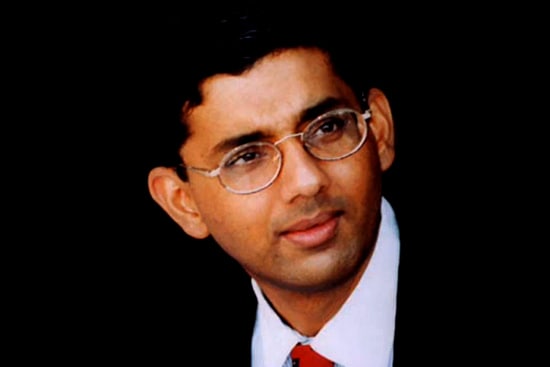
Over the phone, his voice sounds like everything you’d expect it to.
It’s a shock to the system, really, how quickly he can command your attention with something as simple as a “can you hear me all right?” He sounds august and composed, chewing out every syllable like it’s caramel. He refers to himself as “a gentleman actor” and, well, if James Earl Jones isn’t, who is?
He has over 50 years of acting experience under his belt. He has won Emmys, Tonys, an honorary Oscar and even a Grammy for his part in the spoken-word recording of “Great American Documents.” Offhand, it’s difficult to name an actor with more iconic roles. Maybe one performer per generation turns in a performance that defines them. Between Star Wars, The Lion King and Field of Dreams, Jones has at least three.
But as he talks about his latest film, Gimme Shelter, which hits theaters today, what stands out most is his humility and compassion.
Taking Shelter
Based on a true story, Gimme Shelter tells the story of Apple, a pregnant teen who runs away from her abusive mother. She tracks down her father, whom she never met, and begs him to take her in, but he kicks her out after she decides not to abort her baby. She eventually ends up in a shelter for pregnant young women where she forms a sort of family of her own.
Jones, who plays Father Frank McCarthy, a hospital chaplain who takes Apple under his wing, says he was drawn to the film because it was “created out of reality.”
“The fact that [writer/director Ron Krauss] heard of this shelter, he met the lady who originated the shelter and funded it and he found a way to take a room there so he could see their life—for I don’t know how many months—as he writes this story. There was a real Father McCarthy. There were real—some of the young people, the mothers, from that home participated in the movie,” he says. “And that’s what really drew me to it.”
Jones speaks with obvious compassion about young women who find themselves in situations like Apple in the movie. They are only children really, he says, not truly emotionally and socially mature, and often abandoned by the man who got them pregnant.
“The male often takes the least amount of responsibility, because he does not have to carry the child and nurse the child,” he says. “But the mother now is changed for the rest of her life at an age when she’s not ready, but she has to grow up fast.
“I think Ron was trying to tell that story. It’s an important story, and the only thing we can do is tell a movie about it.”
But Jones shies away from weighing in on what the movie adds to the controversial conversation surrounding abortion in the U.S.
“The point is to tell a story,” he says. “It’s going to be interesting for people to watch and to see and to understand why young mothers choose to have their children instead of having them aborted. Without getting into the debate about abortion, that’s a very personal choice for young mothers to say ‘I want to keep my baby.’ And that’s to be honored. Without politics.”
The credibility of a screenplay is important to Jones (he says he even debated with Krauss over a certain scene he felt was too stereotypical). But in the end, he says, he hopes the audience is moved by the film, but he’s never sure how an audience will react to a movie.
“It’s very odd for an actor to expect a response,” he says. “We have to do the work not knowing what the response will be.
“For instance, the big question is ‘does this movie have a happy ending?’ Well, I think the happy ending started with the fact that the girl wanted to keep her child. That made a potential creative ending. And I don’t know how people will respond to that.”
Accident and Good Fortune
Although he’s known for his massive, grandiose screen presence, Jones says he prefers the smaller, more realistic characters such as Father McCarthy, but he takes work where he can get it. He doesn’t create the roles, he says, the choices just come along—by accident or good fortune—and he takes advantage of them if he can.
Jones has had plenty of good fortune throughout his career, perhaps the best stroke of luck was becoming the voice of Darth Vader, a role he has reprised several times over in various movies, TV shows, video games and even theme park rides.
But Jones says his favorite roles to play are actually characters who aren’t well-spoken—“people who have a difficult time expressing themselves who are not articulate but have deep things that they feel and experience.”
“When a filmmaker or [playwright] finds a way that they express those feelings, that’s what I like to do,” he says.
Perhaps this partially stems from the fact that Jones himself knows how it feels to be inarticulate. As a child, Jones developed a severe stutter. The man with the now-iconic voice self-consciously avoided speaking in school until a teacher helped draw him out in high school.
In college, he found his true passion lay in drama. And after making his Broadway debut in the late 1950s, he started taking roles both on TV and film. He’s been juggling roles on stage and screen ever since. His list of credits includes a little bit of everything—he’s been in classics such as Dr. Strangelove and The Hunt for Red October, showed up in TV series and indies, narrated shorts and documentaries and plenty more.
He’s not above doing commercials, either. This year, he has appeared alongside Malcolm McDowell in a hilarious Sprint ad campaign. The tuxedoed, straight-faced Jones and McDowell earnestly “honor” ordinary conversations and activity of Sprint customers, in one case spouting tween texting slang such as “amazeballs” and “Totes McGotes.”
Leaving a Legacy
Though he definitely has plenty of roles to choose from, Jones doesn’t name any particular one as his favorite. He says he’s enjoyed all his roles, from Star Wars to Gimme Shelter, but he feels his true legacy lies offscreen.
“Oddly enough, I think my legacy is tied up more in stage work than in film,” he says. “My legacy is probably mainly in the memory of the people who came to see my stage work.”
And, he admits, that legacy is fleeting. The memory of those performances will die with the people who came to see them. But this doesn’t seem to bother Jones. He sounds honored just to have been able to make his living as an actor.
“I think I grow every time I do a different story,” he says.
And though he recently turned 83, Jones doesn’t sound like he plans to slow down anytime soon.
“I’m proud of some of the film work I’ve done,” he says, “but I don’t think I’ve done a film yet that I can say ‘that represents me or what I can do.’ I’m still looking for that movie.”






















